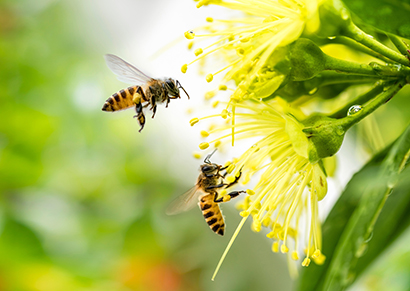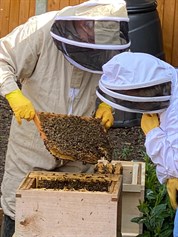
In the spring many UK bee species become more active and this increase in activity can cause unnecessary confusion and concern for some people.
Cleankill director Clive Bury, a beekeeper himself, said: “When they call us people are absolutely convinced that they have wasps, but it is too early for wasps, so we know they are bees. Honeybees are frequently mistaken for wasps. However, wasps don’t become active until early summer, so if you see a buzzing insect in the spring it will be a honeybee, not a wasp.”
There are around 250 types of bee in the UK, including 25 bumblebees and one type of honeybee. It is important to remember that bees are beneficial and vital insects, which are not normally considered as pests.
Mr Bury added: “Many species of bee are considered ‘endangered’. Bees are very important pollinators – they pollinate about a third of everything we eat. Although many bee species have stings, they will only sting people if strongly provoked and, because they are so beneficial, every effort should be made to avoid controlling or destroying them.”

Honeybees usually exist within hives in the care of beekeepers. But there are feral honeybee colonies living in the wild. As summer approaches, honeybee swarms are likely to occur. Swarming is the honey bee’s natural reproductive behaviour, so if people see a large group of bees hanging from a branch or in a cluster on the ground it is best to contact the British Beekeepers’ Association to find a local swarm collector.
Mr Bury said: “Bumble bees may look and sound menacing, but they rarely display aggressive behaviour and just want to get on with their own business. This is true of a number of solitary bee species. They all play a vital role in nature. In many cases, their activity should be encouraged to continue without interruption. If they are being a nuisance, then it is best to leave them to it, although it may be possible to ‘move’ them to a more convenient location. We always urge people to call us or a BPCA registered pest control company for advice.
“It is vital to try to protect all bee species so we encourage responsible pest management within our industry while educating customers on the benefits of bees as pollinators, their behaviour and their lifecycle, encouraging customers to consider the alternatives to destruction and we always advise contact with the British Beekeepers’ Association when people encounter honeybee swarms – or request that solitary and bumblebee colonies are allowed to complete their activities without interference.”

